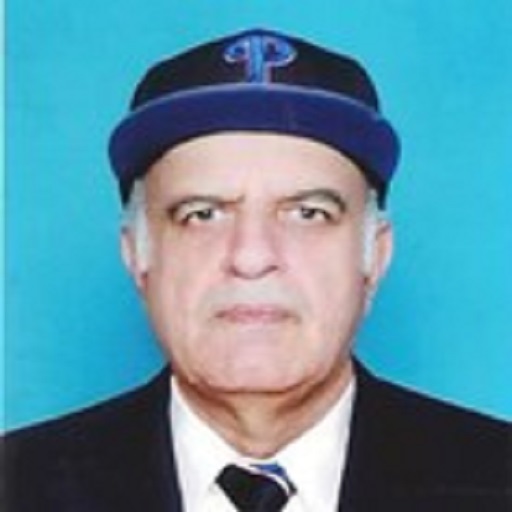Soft Semi # ɡα Mappings in Soft Topological Spaces

Prof. Raja Mhammad Latif
Prince Mohammad Bin Fahd University, Al Khobar, Kingdom of Saudi Arabia
Abstract: Many practical problems in economics, engineering, the environment, social science, medical science, and so forth cannot be dealt with by classical methods because classical methods have inherent difficulties. The reasons for these difficulties may be due to the inadequacy of the theories of parameterization tools. Soft set theory is a newly emerging tool for dealing with uncertain problems. Soft set is a fully generic mathematical tool for modeling uncertainties and is used in various disciplines. It is a tool for handling ambiguous, uncertain, and indeterminate data. Numerous academics have introduced and researched the concept of soft sets in several domains, including game theory, operations research, probability, and decision-making. Soft sets have been studied in proximity spaces, multicriteria decision-making problems, medical problems, mobile cloud computing networks, defense learning systems, and approximate reasoning etc. Topology is a branch of mathematics whose concepts exist not only in almost all branches of mathematics but also in many real-life situations. The notion of soft topological space is a very recently developed area having many research scopes. Functions are mathematical constructs that model relationships between inputs and outputs. In math, a function is like a machine that takes an input (usually a number) and produces a corresponding output. Each input value is associated with exactly one output value. You can think of it as a rule or a relationship between two sets of numbers, where every input has exactly one output. Functions are a fundamental concept in mathematics and programming, with vast real-life applications that affect various industries. From computer science to economics, and from engineering to biology, functions serve as a bridge between abstract theories and practical problem-solving. This paper aims to introduce soft mappings called soft semi # ɡα continuous maps, soft semi # ɡα irresolute maps, soft semi # ɡα open maps, soft semi # ɡα closed maps, soft semi # ɡα homeomorphisms, soft contra semi # ɡα maps, and soft almost semi # ɡα maps in soft topological spaces. We investigate properties and characterizations of these mappings in soft topological spaces.
Brief Biography of the Speaker: I completed a B.Sc. degree in Mathematics and Physics from the University of Punjab, Lahore, Pakistan, in 1972. I completed M.Sc. in Mathematics and M. Phil in Mathematics in 1975 and 1976, respectively, from the Quaid-i-Azam University, Islamabad, Pakistan. Soon after my graduation in the same year, I started teaching as a lecturer in Mathematics at the same University. In 1980, I obtained a DAAD scholarship and worked as a research fellow at the University of Osnabruck, Germany, for two years. I had been teaching different graduate courses, including Topology, Real Analysis, Complex variables, Functional Analysis, Group Theory, Linear Algebra, Rings and Modules, Ordinary Differential equations at the Quaid-i-Azam University, Islamabad, Pakistan. In 1985, I obtained a Canadian International/University of Alberta Scholarship and started my Ph.D. in Mathematics at the University of Alberta, Edmonton, Canada. I completed my Ph.D. in Mathematics in 1989. Then in the same year, I joined Northern Illinois University, DeKalb, U.S.A., as a teaching assistant. In 1990, I joined the University of Southern Maine, Portland, U.S.A., with the same teaching assistant position. In 1991, I joined King Fahd University of Petroleum and Minerals, Dhahran, Saudi Arabia, as an Assistant Professor of Mathematics. I had been teaching General Topology at the Graduate level and different courses of Mathematics, including Advanced Calculus, General Topology, Calculus I, II, III, Calculus for Business Students, Ordinary Differential Equations, Finite Mathematics, Algebra, Trigonometry, Linear Algebra, Business Calculus and Probability and Statistics at the undergraduate level. I published about thirty Technical Reports in the Department of Mathematical Sciences at KFUPM. I have given several seminars at KFUPM. I have examined at least half a dozen M.S. Dissertations in Topology at different universities in Saudi Arabia as an external examiner. I joined Prince Mohammad bin Fahd University as an Assistant Professor of Mathematics in 2011. I had made contributions in several dozens committees and technical groups consecutively at KFUPM and PMU. I have participated in more than two hundred national and international workshops at KFUPM and PMU. I have participated in and made presentations at more than fifty national and international conferences. I have taught different courses in Mathematics, including Linear Algebra, Statistical Methods, Introductory Algebra, Calculus for Business Students, Finite Mathematics, Calculus I, II, III, Ordinary Differential Equations, Probability and Statistics, Linear Algebra, and Differential Equations. During my career of twenty years at KFUPM and fourteen years at PMU, I have published more than one hundred research papers in International Journals in the fields of General Topology, Fuzzy Topology, Neutrosophic Topology, Soft Topology, Nano Topology, Micro Topology, Topological Vector Spaces, Algebra, Statistics, and Mathematics Education.